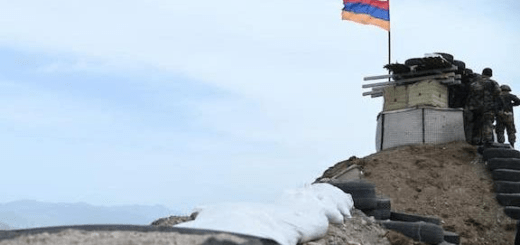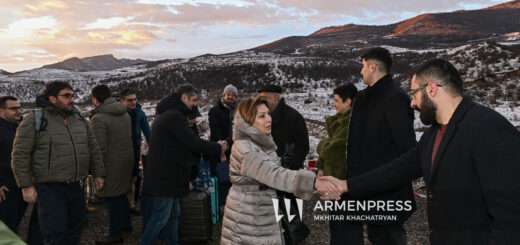Armenian-Americans in SoCal express hesitancy over Armenian-Azerbaijan peace deal announced by Trump

President Donald Trump hosted the leaders of Armenia and Azerbaijan on Friday, reaching a peace deal to end a decades-long conflict.
It’s not only an important deal globally, but also in the Los Angeles area. Southern California has the largest Armenian population outside of Armenia.
The agreement calls for peace and economic opportunity, but what was not mentioned in it is what concerns some of the Armenian-Americans who spoke to Eyewitness News.
“The countries of Armenia and Azerbaijan are committing to stop all fighting forever,” Trump announced.
Leaders of Armenia and Azerbaijan flanked Trump and shook hands before signing a joint declaration aimed at establishing peace between the two countries.
It includes plans to create a major transit corridor in the region that will be named after Trump. Armenia grants the U.S. long-term exclusive rights to develop the route.
“We have reached a significant milestone in Armenia-Azerbaijani relations. We’re laying a foundation to write a better story than the one we had in the past,” said Armenian Prime Minister Nikol Pashinyan.
“[It] embraces so many important areas, mutual investments, trade, energy, connectivity, transit, AI, defense sales, counterterrorism,” said Azerbaijan President Ilham Aliyev. “We will turn the page of standoff, confrontation and bloodshed, and provide a bright and safe future for our children.”
Many Armenian-Americans agree that it is a critical and historic moment, while stressing that a right of return for Armenians to Nagorno-Karabakh is necessary. For decades, the nations have fought over control of the region.
“I would say that the Trump administration has accomplished something that all other administrations, Democratic or Republican, have not been able to accomplish, and that is to get this dictator of Azerbaijan, Ilham Aliyev, to stop talking about and using violence against Armenians,” said Timothy Jemal, the president of Global ARM. “[Nagorno-Karabakh is] a territory, historic Armenian territory, hundreds of Armenian churches and monuments, centuries of Armenian identity, Christian identity, ties to Armenian culture and heritage.”
“What we are working on with the Trump administration, and that is these Armenians who were violently, ethnically cleansed from Nagorno-Karabakh, they have to have the right to go back to their homeland,” Jemal said.
“There is no guaranteed right of return. There’s no comment about that within this peace agreement. That’s frustrating to our community. And it is not, it is really, it is injustice. It rewards war crimes,” said Lenna Hovanessian with the Armenian National Committee of America Western Region.
Hovanessian argues the agreement undermines Armenia’s sovereignty and is also calling for the release of Armenians imprisoned by Azerbaijan.
“Where’s the justice? Where’s the accountability? What is this peace deal really doing for Armenia?” Hovanessian asked. “I think that peace should be rooted in justice and peace should be rooted in human rights, and also observation of sovereignty.”
Both leaders of Armenia and Azerbaijan credited Trump for brokering the deal, and Trump has argued that each peace deal should bring him closer to winning the Nobel Peace Prize, which he has openly coveted.





